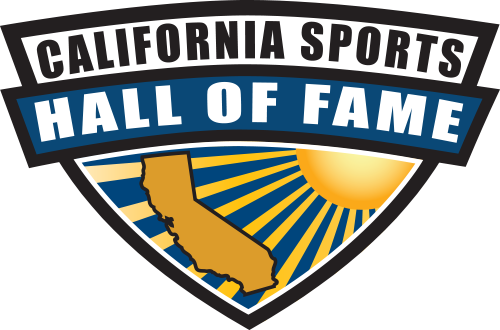Bo Jackson
Vincent Edward "Bo" Jackson, born November 30, 1962, is a retired American baseball and football player. The only athlete to be named an All-Star in two major sports. He was named the greatest athlete of all time by ESPN. While at Auburn University, he won the 1985 Heisman Trophy, annually awarded to the most outstanding collegiate football player.
In 1989 and 1990, Bo Jackson's name became known beyond just sports fans through the "Bo Knows" advertising campaign, a series of advertisements by Nike, that starred Jackson alongside Rock and Roll Hall of Fame musician Bo Diddley, promoting a cross-training athletic shoe named for Jackson. After a 1991 hip injury on the field ended his football career, he focused on baseball, and expanded into other pursuits, including the completion of his Bachelor of Science degree in Family and Child Development at Auburn, and appearing in small parts as an actor, in TV shows such as Married... with Children, and films such as The Chamber.
During his time playing for the Auburn Tigers football team, he ran for 4,303 career yards,[7] which was the fourth best performance in SEC history. Jackson finished his career with an average of 6.6 yards (6.0 m) per carry, which set the SEC record (minimum 400 rushes). In 1982, Jackson's freshman year, Auburn played Boston College in the Tangerine Bowl, where Jackson made a one-handed grab on an option pitch. Auburn went on to win the game 33–26 as Jackson rushed 14 times for 64 yards and 2 TDs.
In 1985, Jackson rushed for 1,786 yards, which was the second best single-season performance in SEC history. That year, he averaged 6.4 yards per rush, which at the time was the best single-season average in SEC history. For his performance in 1985, Bo Jackson was awarded the Heisman Trophy in what was considered the closest margin of victory ever in the history of the award, winning over University of Iowa quarterback Chuck Long.
On November 27, 1982, Bo Jackson and the Auburn Tigers found themselves embattled with their heated in-state rival, Alabama (7-3), in the Iron Bowl in Birmingham, Ala. Auburn held a 14-13 halftime lead when Alabama's RB Paul Ott Carruth scored on an 8-yard TD run—and then the Crimson Tide added a field goal to make it a 22-14 Alabama lead going into the 4th quarter. Auburn responded as Al Del Greco made a 23-yard FG to make it a 22-17 score in the 4th quarter. From Auburn's own 34-yard line, Bo Jackson and company began a long drive as he converted on a 4th-and-1 at the Alabama 42. Jackson, who ran 17 times for 114 yards during this Iron Bowl, continued marching his team downfield as he caught an 8-yard pass from QB Randy Campbell down to the Alabama 1-yard line. On fourth down with 2:26 left in the game, Jackson completed the drive by going over the top for a 1-yard TD run as Auburn (finished 9-3 in '82) pulled off a 23-22 victory over Alabama and its legendary coach, Paul "Bear" Bryant.
During the divisional round of the 1990 NFL playoffs in January, 1991, Jackson was tackled, causing a serious hip injury that ended his football career and threatened his baseball career. After the tackle and lying in pain on the ground, he allegedly popped his hip back into place.
Following surgery and rehabilitation, it was discovered that Jackson had avascular necrosis, as a result of decreased blood supply to the head of his left femur. This caused deterioration of the femoral head, ultimately requiring that the hip be replaced.
Before returning to baseball, he tried his luck in basketball; he played briefly for a semi-pro team in Los Angeles before quietly retiring to focus on baseball.
Jackson was able to return to the Chicago White Sox in 1993, and in his first at-bat, against the New York Yankees, he hit a home run with his first swing. The next day Nike ran a full-page ad in USA Today; it simply read "Bo Knew." He would hit 16 home runs and 45 RBIs that season, helping lead the White Sox to the American League West Division crown. He was honored with the Tony Conigliaro Award.
Yet while his power remained, he no longer possessed his blazing speed. During his time with the White Sox, Jackson had no stolen bases, although he did play in his only career postseason games. For the 1994 season, he was signed as a free agent by the California Angels for one final season, where he hit another 13 home runs in 201 at bats, before retiring during the strike.
